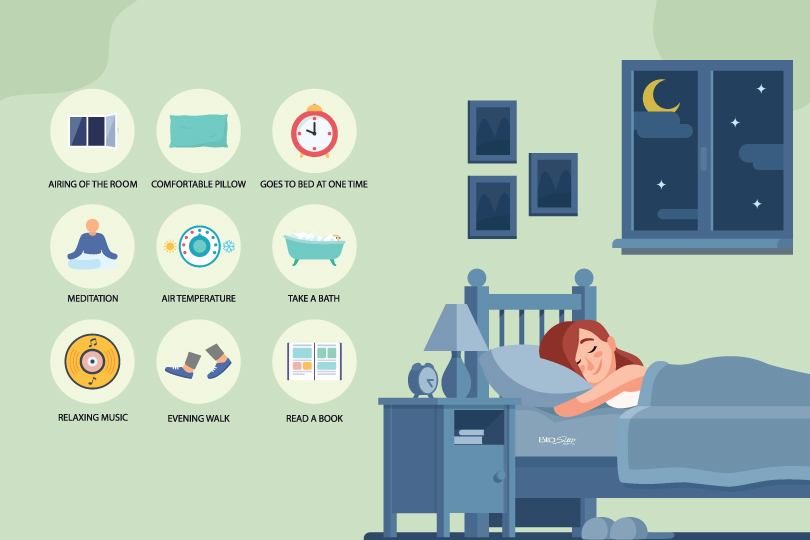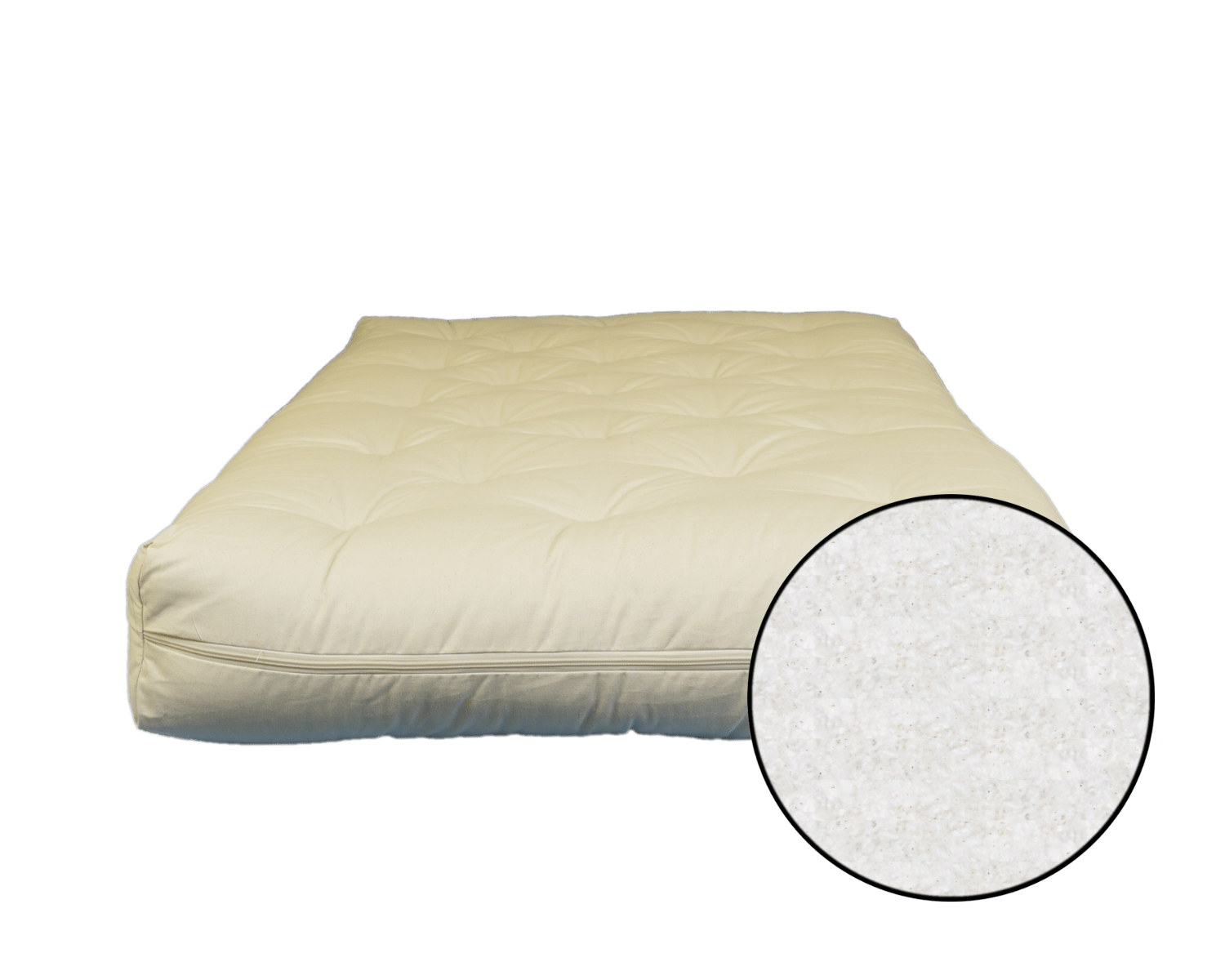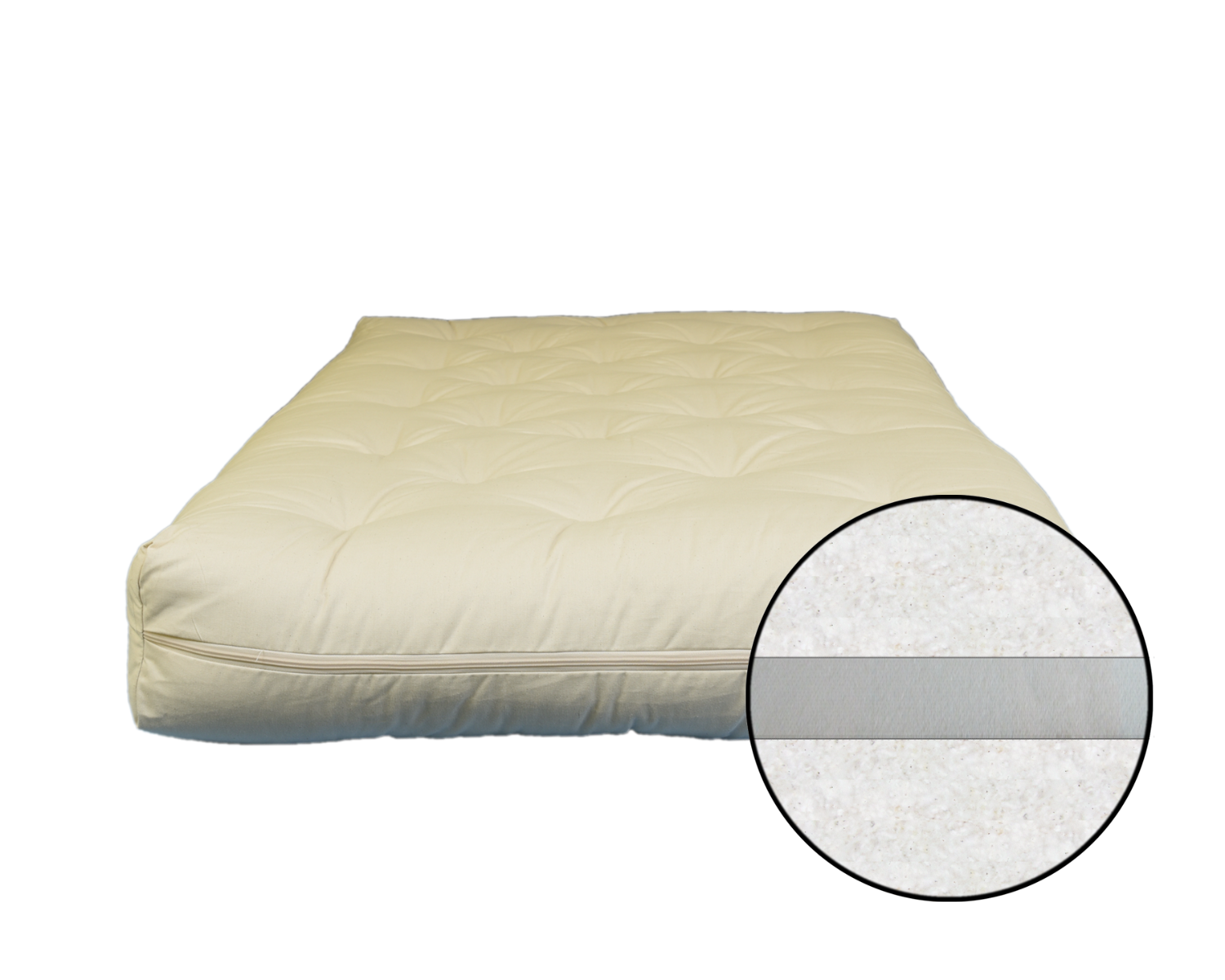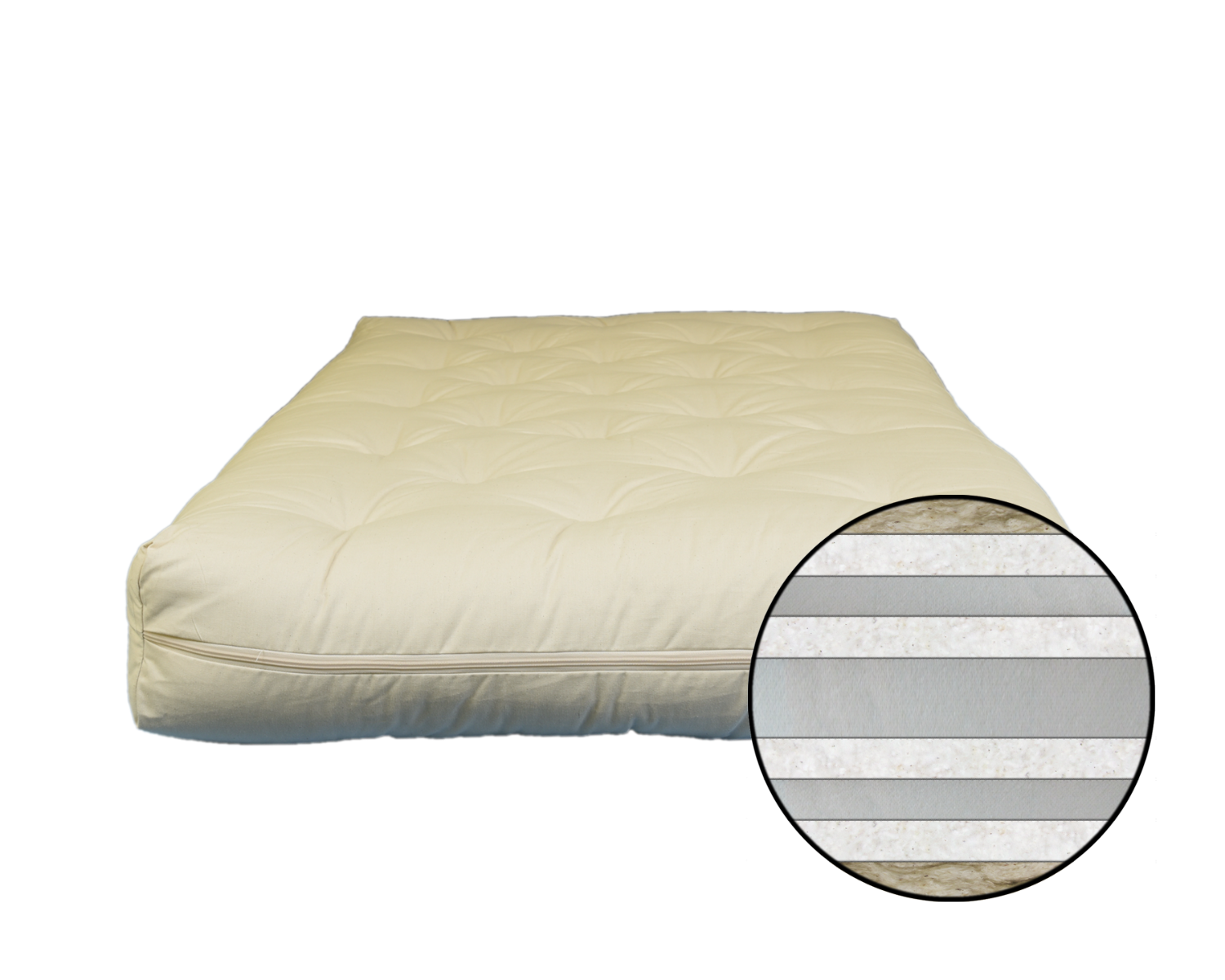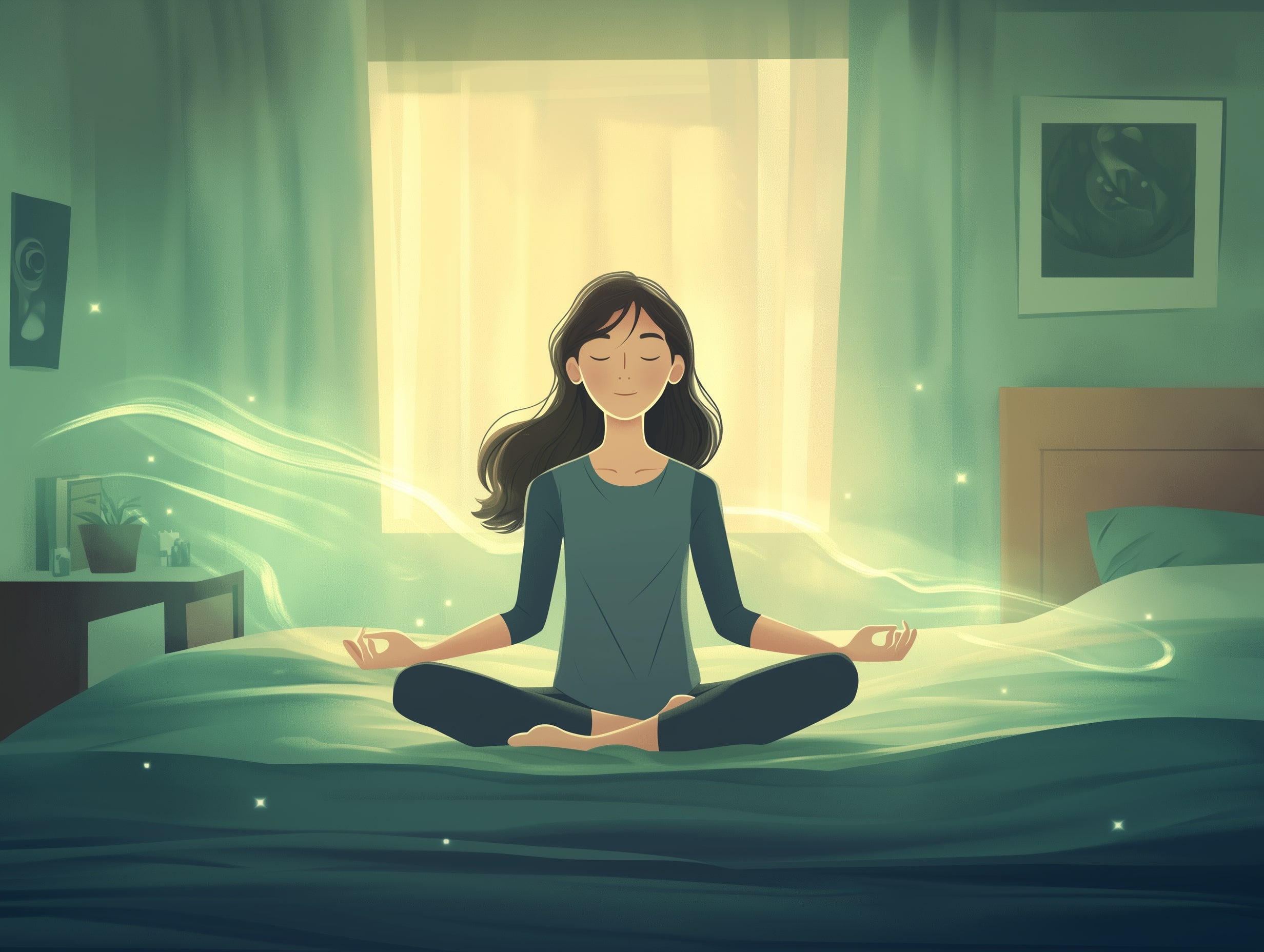Sleep deprivation can trigger both short-term and long-term negative effects on your health. When you constantly spend sleepless nights, you may hallucinate, feel strong headaches, or experience different mental health issues. Not getting adequate sleep can cause trouble in both your personal and professional life.
Your bedroom environment, bedding products, and the things you do before bedtime impact your sleep quality. A high-quality, eco-friendly mattress can help you improve sleep quality with its optimal support and comfort and that’s just one truth out of many on how you can have a great night’s sleep! There are several factors that influence a good night’s sleep, let’s check them out.
Sleep Hygiene Tips for a Good Night’s Sleep
Here are 9 factors that will help you sleep peacefully each night.
-
Comfortable Bedding
The surface you sleep on plays a vital role in providing you with cozy sleep and that’s the first truth of having a good night’s sleep.
Synthetic mattresses mostly become stiff after a few years of use. When you sleep on such a mattress, it cannot provide you with enough firmness and may promote a wrong sleep posture as well. Additionally, sleeping on such a mattress can cause you pain in several parts of your body.
Greenguard Gold-Certified mattresses are premium in quality, offering you ideal firmness. These mattresses are made with natural organic materials that provide your body with enough support during sleep.
-
Fixed Bedtime
Maintaining a healthy sleep routine can help achieve quality sleep. One can beat insomnia by maintaining a fixed bedtime schedule.
You may think of catching up on missed sleep by sleeping more on weekends. However, it may disrupt your cardiac rhythm. In such a situation, it is better to take a power nap every day at noon.
Also, you must know that fragmented sleep is not refreshing. So, try to wake up when your alarm rings for the first time instead of snoozing it away.
-
Meditation
Meditation and relaxing can help you achieve better sleep at night. Meditation has the power to calm your body and mind by promoting inner peace. Practicing it before bedtime can help reduce insomnia and other sleep troubles.
If you meditate before going to bed, it triggers psychological changes and initiates sleep faster. Several studies have found that meditating before sleep results in fewer insomnia experiences and overall calmness as it increases the production of melatonin, a sleep hormone.
-
Airflow in Bedroom
The proper ventilation or airflow of the bedroom is a vital part of achieving quality sleep. When there’s improper ventilation in your bedroom at night, carbon dioxide levels exceed. Therefore, the air quality becomes poor and affects the quality of your sleep.
A stiff mattress hinders the airflow in your bed. A lack of airflow in your mattress makes you sweat and keeps you tossing and turning the entire night. An eco-friendly mattress allows air to pass through it, which can reduce sweating while sleeping.
-
The Temperature of the Room
The temperature of your bedroom impacts your good night’s sleep. Higher room temperature is associated with lower restorative sleep. A bedroom that’s too warm can cause discomfort and make you sweat at night. Sleeping in such a room can make someone feel fatigued or tired.
A cool and quiet bedroom helps you drift off early. Doctors suggest that the bedroom temperature should be 15.6℃ to 20℃ (60℉ to 68℉) for comfortable sleeping.
Pro tip: Investing in an eco-friendly mattress will help you sweat less and rest more!
-
Bathing Before Bed
Health experts recommend taking hot showers before going to bed at night for better sleep.
Showering at night time ensures that your body is free from sweat, dirt, and dust. During sleep, your body temperature generally stays cool and increases over time. Exposing your body to a warm shower before bedtime can reverse this natural process of body heating, helping you enjoy a cool sleep!
-
Relaxing Music
Music has the ability to make people dance as well as fall asleep. Besides meditation, soulful music can ease your mind. With a variety of streaming applications and portable speakers, it is easier to make music a part of your daily nighttime routine.
-
Reading
Reading a book you love is one of the best ways to reduce stress before sleeping. Half an hour of reading eases your stress as much as practicing yoga does.
-
Evening Walk
Last but not least, evening walks can benefit your sleep routine. Moderate exercises, like an evening walk, help your body temperature increase, which makes you feel sleepier as the temperature drops. However, you should note that high-intensity workouts, like cycling or skipping, can increase heart rate and cause difficulty in sleeping, so it’s best to avoid them before bedtime.
Wrap Up
There can be distractions, like a message or a phone call from your work or your close one during bedtime. A chat or phone call lessens the duration of your required sleep. Avoid attending to your friends and relatives just before hitting the bed at night. You should reserve your bed for sleeping and avoid associating it with work and other stimuli. Only then, you can succeed in securing a good night’s sleep!

